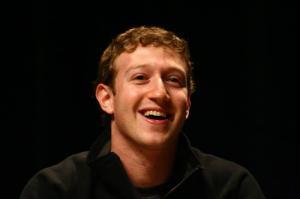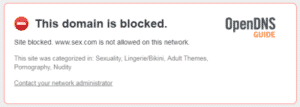Facebook boss Mark Zuckerberg has caused a wave of controversy by saying that he wants to fight for the right of children under the age of 13 to use Facebook. At the moment it is illegal in the USA for social web companies to allow registrations of those under the age of 13. Here in the UK, it is simply a code of best practice, but not illegal. The law, though, is ineffective; around 7.5m children under the age of 13 already have Facebook accounts which are used regularly.

Facebook is not the only place nasty people hang out
For a start, there are people in your village or town who are paedophiles; there are pornographers within your area right now videoing sexual activity and uploading it to some “amateur porn” site. There are bullies in your child’s playground or in your local park this afternoon, terrorising some poor victim. Facebook is simply a mirror; it reflects society as it is right now. So, should you ban your children from going into town, because they might meet a paedophile? Should you prevent your child from going to school, because there are bullies in the playground? As parents what you do – no doubt – is prepare your children for the world in which we find ourselves, warts and all. We do not like the fact that such people exist; we rightly want them dealt with using the full force of the law. But they do exist, dangers exist and we help our youngsters discover how to avoid them or deal with them. Preventing them from taking part in the world around them is actually doing them a disservice as they do not learn how to cope.
Facebook is an increasingly important part of that world – like it or not – it is a significant component of the world to which we are attempting to socialise our children. If we do not include Facebook as part of their world, we are not effectively preparing them for it – dangers and all.
Parents need to understand Facebook
When parents are asked by their children if they can visit a friend in another part of town, for instance, they assess the dangers – the roads, the walk across the park, the likely activities they will get up to together. But parents understand these environments. They have been in them during their childhood and are therefore able to interpret the risks more readily. But many parents do not know or understand the environment of Facebook. There are dangers there, of course, but many parents are unable to assess them because they have no experience of them. All they know are the scare stories from a prejudiced media. So, they impose a “ban”.
There are two issues here. Children who are banned from doing something do their darnedest to find a way around that ban, just to spite their parents. Ban your kids from Facebook and they may join up anyway. Secondly, the bans are often based on lack of knowledge. If you want to decide whether or not Facebook is suitable for your children, then you need to know and understand that world so you can decide if your individual child is going to be OK. Just as you understand the real world around you, parents need to understand the online world much more than they do. This is the real issue – parental ignorance of the online world.
There are some 15 year olds who probably should not be on Facebook as they are inadequately prepared for it, or would be unable to cope emotionally with anything untoward. Yet they are allowed online, with no parental permission needed and without having to be checked by anyone. Equally, there are 11 and 12 year olds who are emotionally more advanced than their 15 year old cousins. But they are banned from Facebook.
Children do not all develop at the same rate. Only their parents can best determine whether or not Facebook is suitable for them – not some blanket rule. And what happens the day after a child is 12 years and 364 days old? Do they magically change on the stroke of midnight into a different person who can now understand Facebook..? It is, of course, patent nonsense.
The answer is to allow all children to be able to access Facebook – IF and ONLY IF their parents understand the world they are entering and give their express permission. Moshi Monsters manages to run a parental permission system – so too could Facebook. Plus parents need to be more aware of what their children are up to online – just as any good parent does in the “real world”.
Facebook can be a huge force for good – people use it to raise funds for charities, to make the world a fairer place, to educate each other about specific issues. Yet the hysteria about the bad, clouds the positive success.
True children may be bullied on Facebook, true they may be stalked and true they may be sent dubious material – but that’s our job as parents to deal with that issue. Holding our hands up in horror and saying Facebook is evil does nothing to help our children; understanding Facebook and being aware of how our children are using it – that’s the way to truly help them. Mark Zuckerberg wants you to do that – so do I.
How to make the online world safe for your children
|
Related articles
- Mark Zuckerberg: children should be allowed to use Facebook (telegraph.co.uk)
- Mark Zuckerberg wants your kids on Facebook (theglobeandmail.com)
- Zuckerberg: Give me your children (go.theregister.com)


